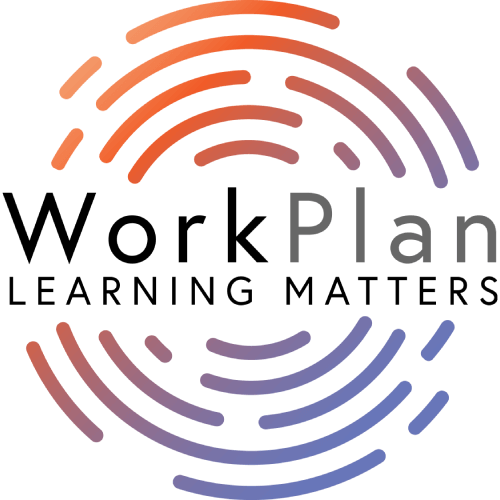Brian Clark, WorkPlan Co-Founder, shares the benefits and a few example activities of collaborative learning.
Collaborative learning is a method of instruction that involves learners working together to achieve a common goal. It can take various forms, such as peer tutoring, group projects, online discussions, or cooperative games.
The Benefits of Collaborative Learning:
Collaborative learning can have many benefits for both individuals and organisations, such as:
- Enhancing critical thinking and problem-solving skills. Collaborative learning exposes learners to different perspectives, opinions, and approaches, which can stimulate their creativity and innovation. It also challenges them to justify their own ideas and evaluate the validity of others’ arguments.
- Fostering social and emotional skills. Collaborative learning requires learners to communicate effectively, listen actively, negotiate roles and responsibilities, manage conflicts, and provide and receive feedback. These skills are essential for building trust, respect, and rapport among team members and across the organisation.
- Increasing motivation and engagement. Collaborative learning can make learning more fun, interactive, and meaningful. It can also create a sense of belonging and community among learners, which can boost their self-esteem and confidence. Additionally, collaborative learning can foster a culture of continuous learning and improvement in the organisation, as learners are encouraged to share their knowledge, insights, and experiences with others.
Collaborative learning can be implemented in various ways in organisations, depending on the context, objectives, and resources available.
Some examples of collaborative learning activities:
- Case studies. Learners can work in small groups to analyse a real or hypothetical scenario related to their work or industry. They can then present their findings and recommendations to the rest of the class or the instructor.
- Expert Groups. Learners are divided into “expert” groups that each focus on a different aspect of a topic. They then form “jigsaw” groups that consist of one member from each expert group. The experts teach their jigsaw group members what they have learned, and the jigsaw groups synthesise the information and complete a task or a quiz.
- Peer review. Learners can exchange their work (such as essays, reports, or presentations) with their peers and provide constructive feedback based on a set of criteria or rubrics. They can then revise their work based on the feedback they’ve received.
- Online forums. Learners can participate in online discussions on a platform such as Moodle or Teams. They can post questions, comments, or resources related to the course content or their work challenges. They can also respond to other learners’ posts and engage in dialogue.
Collaborative learning is a powerful way to enhance learning outcomes and engagement in organisations. It can help learners develop valuable skills that are relevant to their current and future work roles. It can also foster a collaborative culture that supports knowledge sharing, innovation, and performance improvement.
We developed the WorkPlan Learning LMS to support successful collaborative learning. If you are interested in learning more about collaborative learning, get in touch and we are happy to share our experiences and methodologies with you.
How WorkPlan Learning can help
WorkPlan Learning collaborative LMS puts all your business’s training content in one place, making it easy for your employees to access professional development resources. Its collaborative features empowers your employees to give feedback and address gaps in their knowledge.
Contact us to try our free demo.
Related Articles
Are you ready to take your business to another level?
Contact us today
Head Office
1300 726 708
+61 7 3220 2229
Melbourne Office
+61 3 9752 5651
In the spirit of reconciliation WorkPlan acknowledges the Traditional Custodians of country throughout Australia and their connections to land, sea and community. We pay our respect to their Elders past and present and extend that respect to all Aboriginal and Torres Strait Islander peoples.



